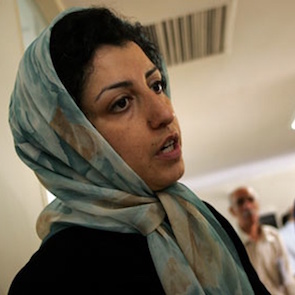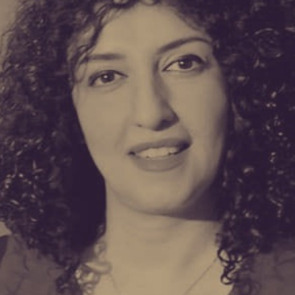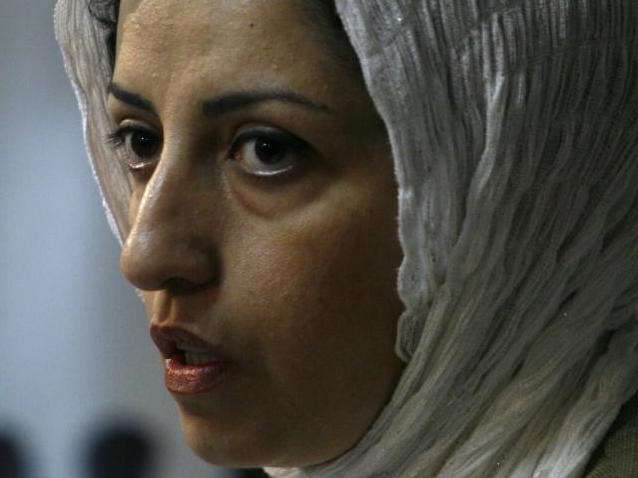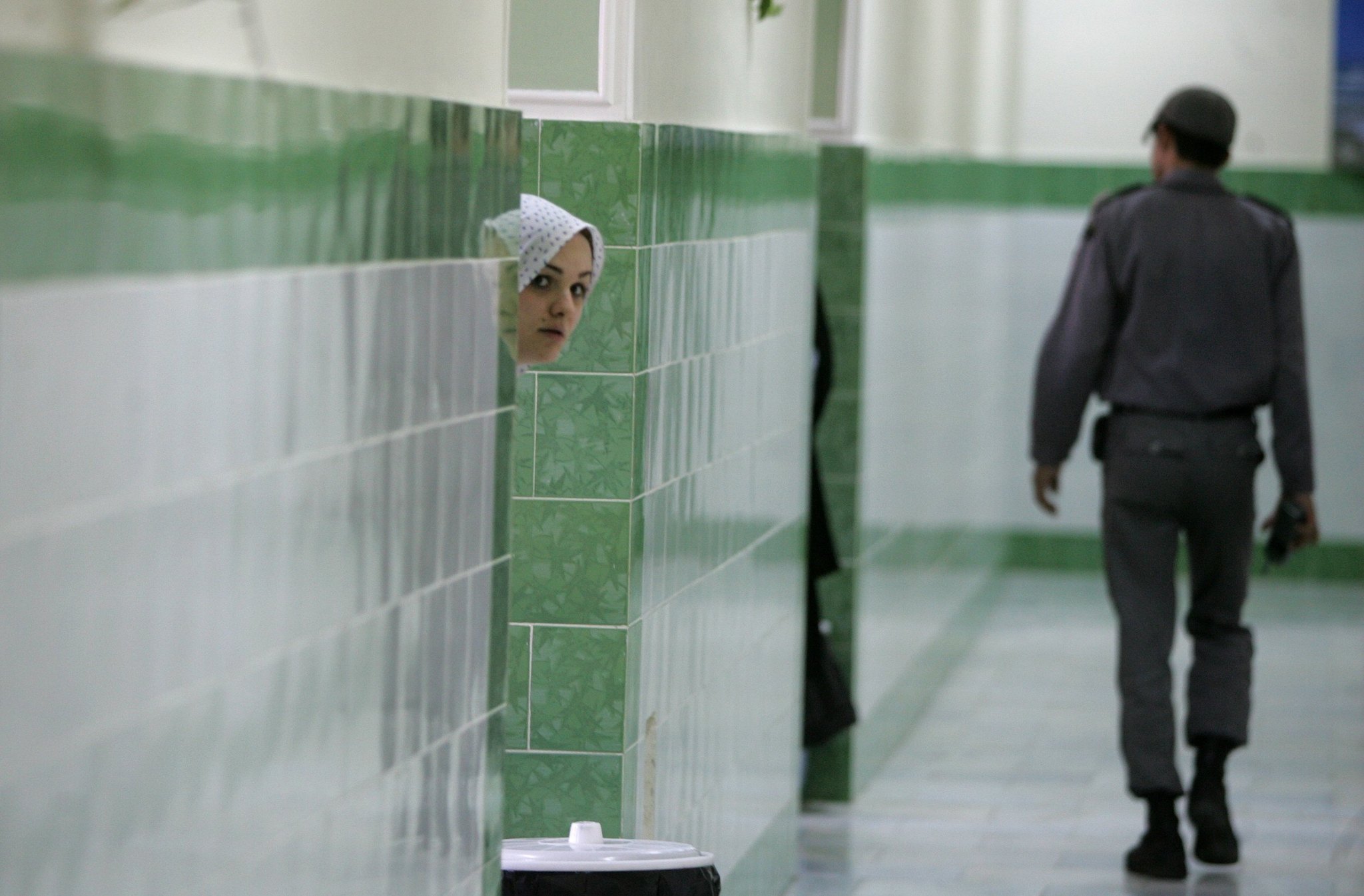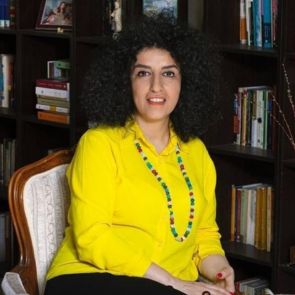
Narges Mohammadi
Iran steps up crackdown on journalists and activists
Narges Mohammadi was awarded the Per Anger Prize by the Swedish government for her human rights work in 2011
the Olof Palme Prize - by the Swedish government in 2023
The UNESCO/Guillermo Cano World Press Freedom Prize in 2023
Narges Mohammadi has been awarded PEN/Barbey Freedom to Write Award.
Narges Mohammadi has been awarded the Nobel Peace Prize.
"The Iranian society has been strongly claiming its right to democracy. Students, workers, teachers, women, youngsters have precise requests and the Government will have to give them an answer. A satisfactory answer. It is not the problem of an elitarian group, it is the problem of an entire nation."
Narges Mohammadi is a woman human rights defender, and deputy director and spokesperson of the Defenders of Human Rights Centre (DHRC) in Iran. She has advocated for the abolition of the death penalty in Iran, as well as for prisoners rights. As a direct result of her human rights work she has been imprisoned on several occasions. She is the 2023 Nobel Peace Prize laureate for her "fight against the oppression of women in Iran and her fight to promote human rights and freedom for all." Beginning in 1998, her criticism of the Iranian government saw her spend one year in detention, followed in 2010, when she was detained for a month in connection with her work with the DHRC.
On 18 May 2016, the Revolutionary Court sentenced her to 16 years’ imprisonment on charges which stemmed from her human rights work. She was released on 8 October 2020, after serving 4 years of her sentence, following the ratification of a law reducing prison sentences for political prisoners. Narges Mohammadi maintained her human rights activities for prisoners rights while in prison and upon her release she intensified her actions, lending her support to a campaign against “white torture”, a psychological torture technique employed by the Iranian authorities which includes the use of solitary confinement and complete sensory deprivation for prisoners in Iran.
A little over a year after her release, on 16 November 2021, Narges Mohammadi was re-arrested, and days later, on 22 November 2021, she was brought before Shahid Moqadas Amniat (Evin) Court for a hearing on new charges. A list of human rights activities were presented as evidence of her criminal acts that she had undertaken since her release in October 2020, including; her nomination for a Nobel Peace Prize, which has reportedly been interpreted as “espionage for a hostile state”; “participation in a memorial of the victims of November 2019 mass protest”; and “commemoration of the victims of the Ukraine International Airlines Flight 752 shot down in January 2020 by the Iran’s Islamic Revolutionary Guard Corps (IRGC)”. The list also referred to the book she penned called “White Torture”, which includes testimonies of victims of solitary confinement and those who spoke out against sexual abuse of women prisoners in Iranian prisons.
On 12 January 2022, after she was held in a solitary confinement for 64 consecutive days, 40 days of which she was held incommunicado with no access to phone calls to her family or her lawyer up, she was brought to trial. The trial lasted just five minutes. On 25 January 2022, she informed her family of the new sentence of 8 years and 2 months in prison, 74 lashes and a 2 year ban on telecommunications tools and social media, two years of exile and two years of ban on membership in political groups. The court’s decision was based on the charge of “collusion against state’s security”.
On 19 February 2022 Narges Mohammadi was hospitalised with a 75% blockage of one of her coronary arteries and she underwent emergency surgery. On 22 February she secured a release on temporary medical furlough. On 22 April she was violently rearrested at her apartment and returned to prison.
Most recently, on 9 October 2022, Branch 26 of the Tehran Revolutionary Court sentenced Narges Mohammadi in absentia to an additional 15 months in prison under the charge of “propaganda against state”, for inviting people to support the justice-seeking mothers and her anti-war advocacy. Additionally, the woman human rights defender was subjected to complementary punishments including the cleaning up of the garbage in a deserted neighbourhood for three months. She has been unjustly imprisoned for the most part of the last six years, and this is the third time that the woman human rights defender is being sentenced to prison sentences, amounting to eleven years and eleven months in less than two years.
On the occasion of her 50th birthday, Narges Mohammadi shared an inspirational (pre-recorded) message of hope & solidarity (21 April 2022: ). The English transcript is available here:
“Dear human rights defenders, I am very happy to share this video message with you today on the occasion of my 50th birthday. Despite the fact that I am heading towards prion now again at 5 pm (on 12 April 2022) like several times in the past few years, I am full of hope, free from any worries or frustration. This is not the first time I have been to prison. I have been arrested 12 times, and sentenced 5 times, to over 30 years of prison and 154 lashes. Most recently I was sentenced to 8 years and 2 months, 74 lashes, This in addition to 30 months behind bars and 80 lashes in another case. Before my arrest in November last year, together with 85 civil rights activist, we started a campaign called “White Torture”, filing lawsuits against the use of solitary confinement in Iranian prisons. We believe this practice should be stopped as a gross violation of human rights, even standing contrary to the domestic laws in the Islamic Republic of Iran (I.R.I). Four months ago, I was held for over 2 months in a solitary confinement in Ward 209 of Evin prison, during my last detention. Then I asked myself should I be disappointed? Did I then feel that our campaign had failed when I was transferred to one of those cells for the 4th time? On the contrary, I believe it takes courage, endurance, and awareness to realise human rights and democracy. I think my country fellows are now more than ever aware and willing to achieve democracy after a 100 years of struggle.
Today, I am hopeful. The vast protest movements with labours rights calls among teachers, women and young people give me hope. Of course we are being suppressed by the I.R.I., but we believe that is the sign of my people’s power and resilience and the weakness of the oppressors.
Therefore, today I am hopeful, content as I am returning to prison, I am smiling… Mostly encouraged by the support of the community of human rights defenders... you! Celebrating my 50th birthday, I renew my vow with you my dear human rights defenders, for engagement, resilience and perseverance until a democratic transition for the Iranian people with respect for their human rights. We will not give up until then! One day, we’ll chant victory songs together with joy and delight. Until that day I send you my best wishes.”

